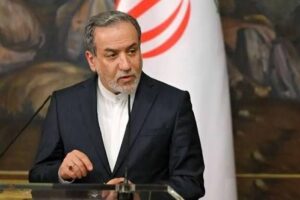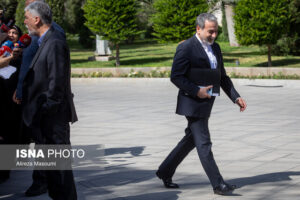In an interview with CNN, Scott Anderson discussed the effects of attacks by the U.S. and the Zionist regime on Iran, the formation of the Islamic Republic, and the reasons behind the U.S.’s enmity with Iran. He stressed that these attacks not only failed to achieve the goals of the Zionist regime and the U.S.—namely, the “collapse of governance in Iran”—but also created an unprecedented wave of nationalism inside the country.
In an interview with Fareed Zakaria on CNN, Anderson stated, “The 1979 Islamic Revolution in Iran was both a religious and an anti-colonial movement. At that time, the Shah was regarded as a servant of the United States, and this perception played a key role in shaping the Revolution and ensuring its continuation.”
Pointing to the consequences of violations against Iran, Anderson added, “After the bombing of Iran’s nuclear facilities by the U.S. and Israel, a wave of national unity emerged in Iran. These attacks caused people to rally together under the country’s flag.”
He emphasized, “This situation ultimately benefited Iran. We now witness unity among different walks of life in the face of foreign threats—an element that can guarantee the resilience of Iran’s governance for years to come.”
Criticizing the position of Benjamin Netanyahu, Israel’s Prime Minister, amidst the attacks, Anderson said, “When Netanyahu openly spoke about regime change in Iran, it was the biggest gift to the Iranian government. Such remarks not only fail to turn people against their government, but also boost national unity and make it clear that Israel’s strategy has failed. Israel’s actions produced the opposite effect. Although Israel aimed to overthrow the regime in Iran, nationalism has now grown to unprecedented levels in the country.”
Reviewing the history of Iran–U.S. relations, Anderson said, “The CIA had been engaged in restoring the Shah to power since 1953. The Shah was always known as ‘the American Shah.’ This overt dependency fueled anger and anti-colonial sentiment inside Iran. The Shah was wrong to repeatedly ask Jimmy Carter to express his support—such support sent the worst possible message to the opposition.”
Pointing to the link between religion and nationalism in Iran, Anderson said, “Iran’s Islamic Republic marked the beginning of religious nationalism, a phenomenon now seen in many countries—from Christian nationalism in the U.S. to extreme religious movements in Israel. If Iran’s government can frame the recent attacks as attacks on Islam, it can use this opportunity to boost its legitimacy and influence in the region.”
Anderson concluded that the recent developments not only demonstrate the stability of Iran’s political structure, but also reveal the failure of Israel and its allies to achieve their military and political objectives.

Aragchi says Lebanon visit focuses on regional security
Iranian Foreign Minister Abbas Araghchi arrived in Lebanon on Thursday afternoon to hold talks with the Arab country’s officials. Speaking upon arrival at Beirut’s Rafic






